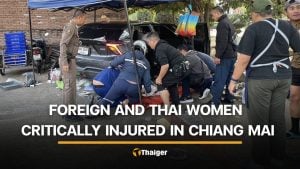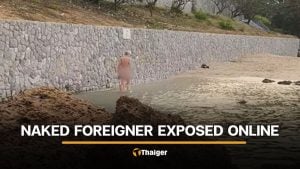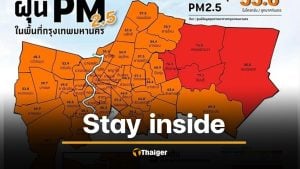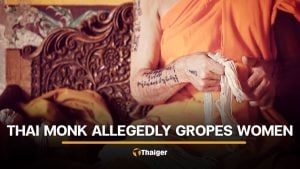Nike defends sweatshops accusation in Thailand

Sportswear giant Nike defended itself over accusations it is running sweatshops in Thailand, paying its factory workers 42 baht an hour to make England 2022 World Cup replica jerseys while they make fortunes of profit.
Controversy surrounding the 2022 FIFA World Cup in Qatar just won’t go away. On Friday, The Thaiger broke a story of an alleged match-fixing scandal on the eve of the tournament while the decision to stage football’s most prestigious competition in the Arab country of Qatar was awarded amid allegations of corruption and human rights violations.
As England prepares for their opening fixture of the tournament tonight versus Iran, The Daily Mirror reports that while Thai factory workers receive a miserly 42 baht an hour to make replica England shirts they are retailing at an eye-watering 5,000 baht (£118).
Stadium shirts have a starting price of about 3,200 baht, meaning that match shirts close to the ones the players wear cost 1,700 more. Shirts for children cost 2,560, while the add-ons push the price up even more if they want a name and number of a player – an extra 640 baht (£15).
The English Football Association website does not reveal where the shirts are but a jersey label reveals that they are made in Thailand by the US multinational corporation Nike.
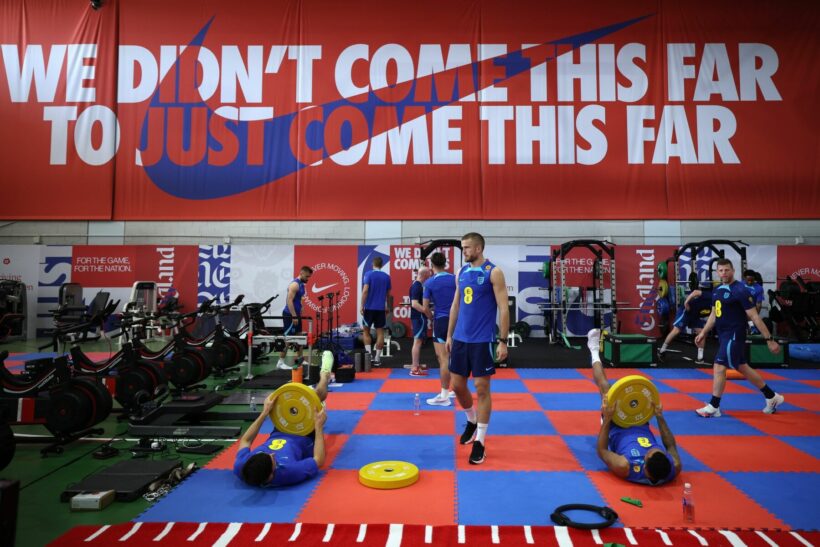
Industry experts reckon the replica jerseys cost around 500 baht to make at the factory. Of this, 320 baht is the cost of materials, and about 130 baht is for labour costs, leaving around 60 baht profit for the factory.
The Hi-Tech Apparel factory in Bangkok has been making England replica jerseys for years.
Two factory workers told the Mirror that their salary had risen from 331 baht a day to 353 baht in line with government policy in the summer.
The two workers revealed they worked 60 hours a week or between eight to 11 hours a day. They also received overtime pay and a bonus if targets are met. They added they have no union and there is a strict no-phone policy during working hours and no one is allowed to take pictures.
It costs about 40 baht to ship the shirt to the UK but an extra 32% duty is charged hiking the shirt up to 683 baht. Another 812 baht of the 5,000 baht (£115) is VAT, which goes to HM Revenue and Customs. This leaves 3,415 (£80) which is shared between sportswear giant Nike, the Football Association, and retailers.
It is reported that Nike expects to make between 10%-15% profit after their costs. The company earned US$12 billion in revenue last year and made US$2.2 billion in profit.
The FA did not reveal how much it makes from shirt sales but added that when it penned a Nike deal in 2014 that they US$120 100million back into the game every year.
A Nike spokesperson said that it is proud to have designed the England national teams’ football strips adding it is committed to ethical working practices.
“We produce jerseys at multiple price points, so consumers have a choice. Pricing is influenced by many factors including costs of performance materials, R&D, design, manufacturing and selling.
“In addition, Nike is committed to ethical and responsible manufacturing. We believe world-class manufacturing begins with respect for people and the environment. While Nike does not own or operate manufacturing facilities, we strive to work with suppliers who share our commitment to making products responsibly and sustainably.”
Latest Thailand News
Follow The Thaiger on Google News:







